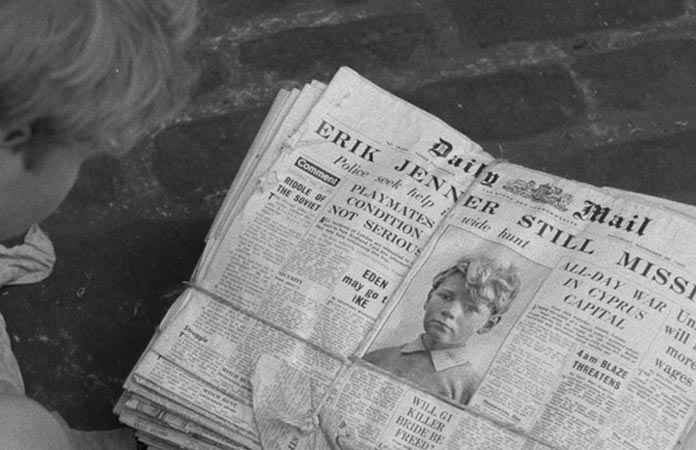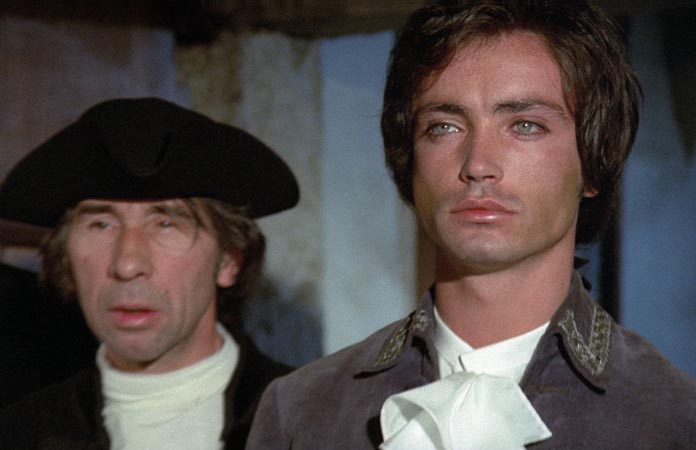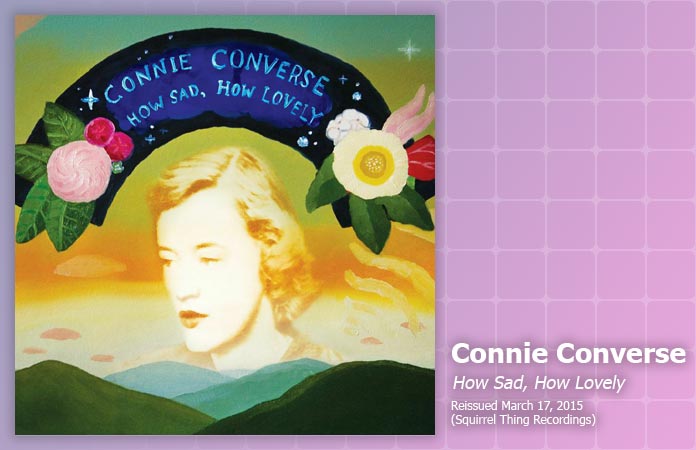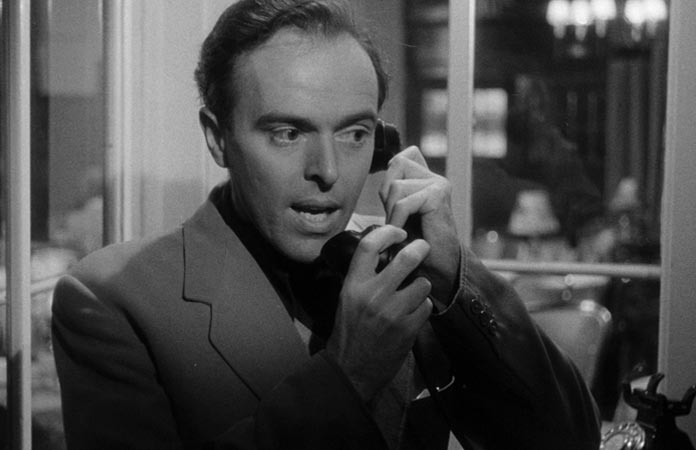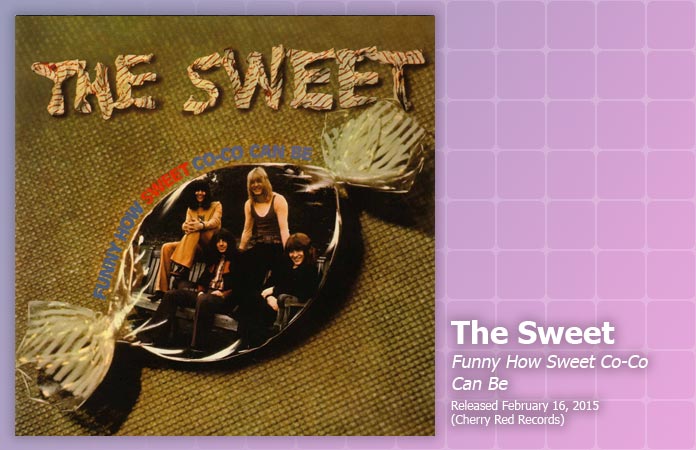Music Review: Jellyfish, Bellybutton and Spilt Milk (Deluxe Reissues)
Published on April 3rd, 2015 in: Current Faves, Music, Music Reviews, Reissues, Retrovirus, Reviews |Like Big Star before them, Jellyfish developed a cult-like fandom that’s far exceeded not only their rather limited output, but also their impact on music charts. Omnivore Recordings, who recently released the soundtrack to the Big Star documentary Nothing Can Hurt Me, has now given the same loving treatment to the Jellyfish legacy with two new reissues of their studio albums—1990’s Bellybutton and 1993’s Spilt Milk—that include a ton of sensational extras, like 51 bonus tracks, full color gatefold sleeves with rare photos, two essays by Ken Sharp, and song-by-song commentary on the original albums from Andy Sturmer, Roger Manning, and Jason Falkner.
Blu-Ray Review: The Weapon
Published on April 3rd, 2015 in: Blu-Ray, Current Faves, DVD/Blu-Ray Reviews, Movie Reviews, Movies, Reissues, Retrovirus, Reviews |As I’ve been going through the movies that Olive Films has reissued, I’ve been finding some that are truly unique, amazing, and kind of unknown. One of these is called The Weapon.
Blu-Ray Review: Mark Of The Devil
Published on March 20th, 2015 in: Blu-Ray, Culture Shock, Current Faves, DVD/Blu-Ray Reviews, Horror, Movie Reviews, Movies, Reissues, Retrovirus, Reviews, Underground/Cult |The original German title of Michael Armstrong’s infamous Mark Of The Devil was Hexen bis aufs Blut gequält, literally translated into Witches Tortured Till They Bleed. It’s a horrifying, yet accurate title for a movie that contrasts lush scenery and exquisite period costumes with some of the most excruciating scenes of torture ever put on film.
Blu-Ray Review: Don’t Go Into The Woods
Published on March 20th, 2015 in: Blu-Ray, Current Faves, DVD/Blu-Ray Reviews, Horror, Movie Reviews, Movies, Reissues, Retrovirus, Reviews |My mom and I watched horror films consistently all through the years of my youth. My mom wasn’t a horror buff, but was really into slashers, so naturally I was as well because I soaked up whatever she would show me. Almost every night we would go to my room and watch at least one film and I would stay up late to make it a double feature. (To this day she will come over to my place and we will either watch a classic or I will show her something new I’ve discovered.)
Music Review: Connie Converse, How Sad, How Lovely
Published on March 20th, 2015 in: Current Faves, Feminism, Music, Music Reviews, Reissues, Retrovirus, Reviews |The story of Connie Converse is both fascinating and distressingly common. After leaving college and heading to New York City in 1949, she wrote and recorded poetic, wry, revealing songs accompanying herself on acoustic guitar. Despite intervention and best intentions of friends (animator Gene Deitch and colleague Bill Bernal) who worked to get Converse’s music heard by a wider audience, she abandoned everything. She wrote a series of goodbye notes to friends, packed up her Volkswagen, and disappeared in 1974. No one has heard from her since. She would be 90 now.
Music Review, Game Theory, Real Nighttime
Published on March 20th, 2015 in: Current Faves, Music, Music Reviews, Reissues, Retrovirus, Reviews |The earlier Game Theory EPs gave us a Portrait of the Artist as a Young Band. As the band tried on and discarded aesthetic approaches and made basement recordings on less than ideal equipment, a musical persona began to emerge: sunny Californian pop with fillips of experimentation and flashes of intelligence, pitting melancholy lyrics against jangly melodies. On Real Nighttime, the band’s first official LP, Game Theory’s sound comes into sharper focus.
Blu-Ray Review: Track The Man Down
Published on March 6th, 2015 in: Blu-Ray, DVD/Blu-Ray Reviews, Movie Reviews, Movies, Reissues, Retrovirus, Reviews |It’s funny how simple movies were back in the day. That’s not a bad thing. It seems these films relied more on acting and cinematography rather than some intricate plot. Lately I’ve been checking out a lot of Olive Films releases and been pleasantly surprised with what I’ve been seeing.
Last night I checked out a very low-key crime drama, Track The Man Down. As I said in the beginning, some of the films from this era have basic plots and focus more on the look and performances; Track The Man Down is a perfect example of this. A group of men rob a dog track and one of the gang members holds onto the cache of cash. Once they figure out the cops are onto them they split, leaving the cash with one of the gang member’s girlfriends. From there the story unfolds more, giving us little surprises along the way.
Blu-Ray Review: Every Man For Himself
Published on March 6th, 2015 in: Blu-Ray, Current Faves, DVD/Blu-Ray Reviews, Movie Reviews, Movies, Reissues, Retrovirus, Reviews |Jean-Luc Godard is a name I’ve been familiar with for a while and from a very young age. I first discovered Godard because of Quentin Tarantino. Tarantino was in an interview discussing movies and whatnot and mentioned he named his company after a French film called Band Of Outsiders. I immediately tracked it down because I was a nerd and Tarantino is a favorite of mine; he has introduced me to so many films that I cherish to this day.
After watching Band Of Outsiders, I did my best to try to track down other Godard films. Contempt, Alphaville, Breathless, and other films have really impacted me. Recently The Criterion Collection reissued his 1980 film, Every Man For Himself. My familiarity with Godard is through his films from the ‘60s and ‘70s so anything past that is new to me, but I was happy to dive into a Godard that was a little alien.
Music Review: The Sweet, Funny How Sweet Co-Co Can Be
Published on February 27th, 2015 in: Current Faves, Music, Music Reviews, Reissues, Retrovirus, Reviews |Cherry Red Records continues to release some of the most fascinating compilations and reissues with a two-disc version of The Sweet’s debut album, Funny How Sweet Co-Co Can Be. The reissue, 28 tracks of music that range from bubblegum to The Sweet’s much heavier B-sides, is a mixed bag. On one hand, listening to the evolution of the band as they go from Archies-flavored pop to some quite heavy rock is fascinating. On the other, some of the songs are painful. Still, The Sweet were a great band, even when they were churning out silliness.
Music Review: Red Lorry Yellow Lorry, See The Fire
Published on February 27th, 2015 in: Current Faves, Music, Music Reviews, Reissues, Retrovirus, Reviews |Back in 1986, I recorded Red Lorry Yellow Lorry’s “Walking On Your Hands” from WTUL college radio in New Orleans. It was the only track I’d ever heard from this Leeds band, but one I listened to frequently. For whatever reason, I never managed to delve further into the band’s discography until now. Cherry Red Records’ recent three-disc release of See The Fire (Albums, Singles and BBC Recordings 1982 – 1987) is a wonderful introduction to a band that has a singular sound but doesn’t fit into any single musical category.

